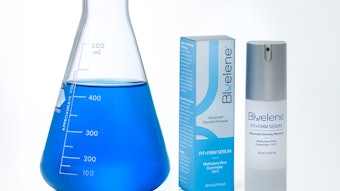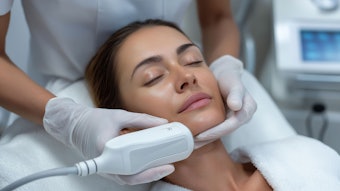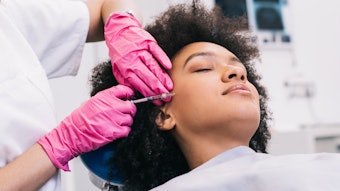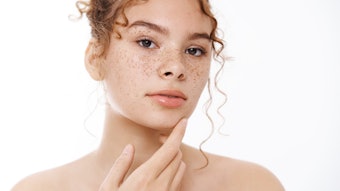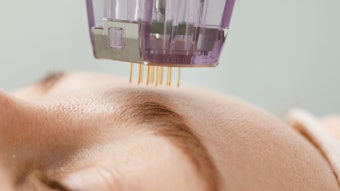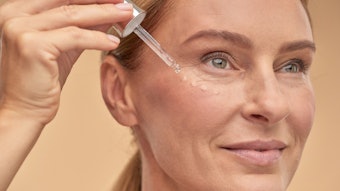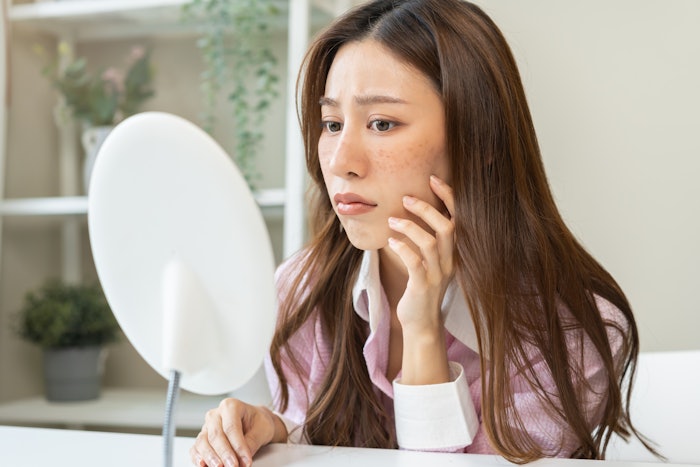
The Negative Stereotypes Associated with Severe Acne
Severe acne can still create stigmatizing attitudes from society that can affect an individual's social and professional lives, according to a December 2023 study published in JAMA Dermatology. The study, authored by Ali Shields, BS, Michael R. Nock, BA; Sophia Ly, BA; et. al, surveyed 1357 adults to evaluate the prevalence and magnitude of stigmatizing attitudes towards individuals with acne.
Results indicate that the attitudes persist across a variety of social and professional scenarios, with some reporting feeling "significantly less comfortable with the idea of being friends or colleagues with someone with severe acne."
Related: CeraVe Highlights Acne Education with Clear It Up Like a Derm Campaign
Participants in the study also endorsed negative stereotypes about people with severe acne, perceiving them as having poor hygiene, being unattractive, unintelligent, unlikable, immature and untrustworthy. The stigmatizing attitudes were even more severe towards individuals with darker skin colors.
The homogeneous population of survey respondents, mostly white and highly educated, may have limited the generalizability of the results. The report suggests that further studies involving more diverse survey populations could help shed more light on the relationship between skin tones and stigmatizing attitudes.
The study indicates that these findings "highlight the need to identify approaches to reduce stigmatizing attitudes in the community and for adequate access to care, which might prevent negative downstream effects related to these stigmatizing attitudes."
Defeatist Attitude Towards Acne Treatments
A survey conducted by Sun Pharma of 1,003 survey respondents ages 13-55 revealed defeatist attitudes about acne treatments among people with mild-to-moderate acne. Only 30% of the respondents had seen a dermatologist for their acne issues and more than half of respondents felt that acne was not preventable and something they just have to deal with.
While 85% of respondents indicated knowledge of hormones as the underlying cause of acne, 69% cited sweat as a leading contributor and nearly one-third expressed the belief that eliminating junk food can make acne go away. Per the survey, 35% thought that squeezing or picking at pimples would help get rid of them, but it may actually worsen the condition and potentially cause permanent scarring.
While 40% reported receiving acne information from a dermatologist, one-fifth said they turn to social media for information, primarily TikTok and Instagram. Of the 77% of respondents who reported having a skin care routine, fewer than one in five characterized themselves as being very successful at mostly preventing acne breakouts and two-thirds said they were somewhat successful.
Related: Adult Female Patients with Acne are More Likely to Visit Dermatologist than Male Patients
Around 30% of respondents said that acne has caused them to avoid social engagement and 55% reported feeling self-conscious on video calls in meetings, Nearly half of respondents said they have hidden from cameras and 38% have added a filter to their digital photos to hide their acne.
Sun Pharma commissioned the survey with the advisement of seven dermatology professionals: Hilary Baldwin, MD; Renata Block, MMS, PA-C; Dawn Eichenfield, MD, PhD; Corey L. Hartman, MD, FAAD; Marjon Vatanchi, MD, FAAD; Karan Lal, DO, FAAD; and Lindsey Watford, CRNP.
"The survey results show that while people have some knowledge of what causes acne, their actions and poor management of the condition appear to be guided by various misconceptions," said Dr. Hartman. "Given the reported lack of control people seem to have over their acne, I find it especially troubling that so few consult a dermatologist."
